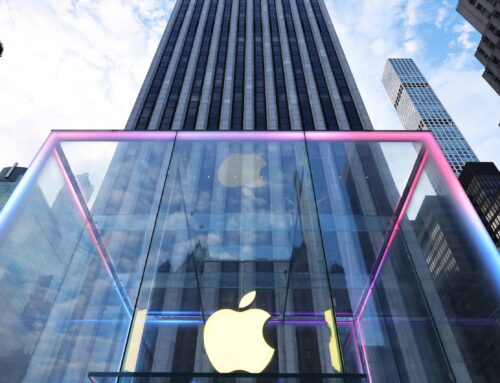“Green” Greenwashing: Emerging Developments In Environmental Marketing Claims
November 11, 2025
Foley & Lardner are most popular:
- within Government, Public Sector, Insurance and Coronavirus (COVID-19) topic(s)
Companies should stay aware of old and new greenwashing
trends and take practical actions to guard against such
claims.
Greenwashing is defined as “the act or
practice of making a product, policy, activity, etc. appear to be
more environmentally friendly or less environmentally damaging than
it really is.” In simple terms,
“greenwashing” refers to when a positive environmental
claim lacks sufficient factual support, such that a
“reasonable consumer” could be misled. Greenwashing can
occur (or be alleged) at various points along the supply
chain—from claims about sourcing practices, to emissions
impacts from product transportation, and to the composition of a
final product. Some forms of greenwashing allegations, such as
those from plaintiff classes and environmental groups, have become
commonplace. Two recent sets of allegations are, well, green:
utilizing greenwashing claims to obtain competitive and political
benefits. Companies should stay aware of old and new greenwashing
trends and take practical actions to guard against such claims.
Green Guides
The “Green Guides,” found at 16 C.F.R.
§ 260, serve as the
Federal Trade Commission’s (FTC) “current views about
environmental claims.” Included in the Green
Guides are several examples of what the FTC deems impermissible
greenwashing related to general environmental claims, as well as
specific claims such as carbon offsets, certifications,
“free-of” claims, non-toxic claims, recyclability, and
claims related to renewable energy and materials. Notwithstanding
these examples, to date the FTC
has avoided specifically opining on claims related to
the life cycle of a product—the product’s
“environmental impact through all the stages of its
life.” The FTC only suggests marketers “may need to
consider the significant environmental impacts of a product or
service through its lifetime.” While the Green Guides
themselves are mere “administrative interpretations of
law,” many states have referenced or incorporated at least
portions of the Green Guides into their respective consumer
protection and advertising statutes.
Greenwashing claims as a business and political
tool
Take a manufacturer of cleaning products for example, who
reached a settlement with a plaintiff class alleging their products
were “falsely and misleadingly” labeled as
“Non-Toxic” and “Earth Friendly.” As part of
the settlement, the defendant agreed to remove the
“Non-Toxic” labels and add an asterisk to the “Earth
Friendly” label to further qualify the claims.
These greenwashing claims follow common molds: a plaintiff class
alleging deceptive environmental marketing led them to purchase a
product they otherwise would not have, and an environmental group
alleging a company is failing to live up to its products’
environmental claims.
But the universe of greenwashing claims may be expanding.
For starters, a manufacturer of hearing protection products
filed a greenwashing suit against a competitor claiming it
“intentionally misled and deceived distributors, downstream
purchasing companies and end users” through
“unqualified” claims about their earplugs such as that
they are “eco-friendly,” “sustainable,”
“bio-based,” and part of an “eco-series.” As
part of its complaint, the plaintiff claims it independently tested
the earplugs for “bio-based content” and found that at
most, the earplugs were 40% bio-based, significantly less than the
claimed 82% bio-based content. The plaintiff is seeking an
injunction against the allegedly unlawful conduct, as well as an
order directing the defendant to issue “corrective
advertising” to address “consumer deception.”
Second, the attorney general of Montana and 15 other Republican
attorneys general delivered a
letter to several technology companies seeking
information related to the companies’ “claim[s] they are
100% powered by renewable energy” based upon the use of
renewable energy certificates. According to the letter, the
companies claiming to commit to 100% renewable power places
pressure on utilities “to move away from fossil-fuel-generated
baseload power” to attract those companies as customers. This
pressure has allegedly led to early retirements of coal and natural
gas power plants, which in turn, threatens grid reliability. (While
unstated, these retirements may also reduce demand for coal from
Montana’s Powder River Basin.)
Rather than seeking to recover damages for purchases of a
greenwashed product, or align a defendant’s environmental
practices with its claims as is typical with greenwashing suits,
the plaintiff is instead alleging the defendant is using “a
calculated ‘greenwashing’ scheme to capture market share
from competitors,” and the attorney generals’ greenwashing
claims appear designed to serve as leverage to incentivize large
technology companies to back away from all-renewable targets and to
maintain demand for fossil fuels to support regional energy
industries. Together they represent a new front in the use
of greenwashing for business and political objectives.
Protecting against greenwashing claims
With these new developments in the greenwashing arena, it may
seem as though greenwashing claims can come from many angles. While
it is not possible to guarantee that one’s company will never
find itself facing greenwashing claims, there are practical steps
that can be taken to minimize the risk of liability.
- Familiarize yourself with the Green Guides.
While the FTC’s materials are not binding and would not serve
as the basis for a cause of action in and of itself, many states
expressly or implicitly follow the Green Guides as part of their
consumer protection schemes. Moreover, courts will give varying
degrees of persuasive weight to the Green Guides. - Familiarize yourself with the state laws and common
laws in areas where your products are sold. From
coast-to-coast and internationally, each jurisdiction will have
different variations of consumer protection and false advertising
laws. Companies should be aware of these differences and consider
whether it makes strategic sense to ensure compliance with the most
stringent applicable laws, regardless of jurisdiction. - Integrate legal review of advertising and marketing
team claims regarding sourcing, transportation, and manufacturing
practices. At its simplest, greenwashing allegations arise
from a mismatch between what is claimed and what is done in
practice. To help avoid such a mismatch, legal teams need to make
advertising and marketing teams aware of the existence and types of
greenwashing claims to assess whether consumer messaging aligns
with those standards. A best practice is to evaluate environmental
claims in light of the Green Guides and “reasonable
consumer” standard, to determine whether they need to be
scaled back or qualified to more accurately match on-the-ground
practices.
This article originally appeared onSupply & Demand Chain
Executivein November
2025.
The content of this article is intended to provide a general
guide to the subject matter. Specialist advice should be sought
about your specific circumstances.
Search
RECENT PRESS RELEASES
Related Post




